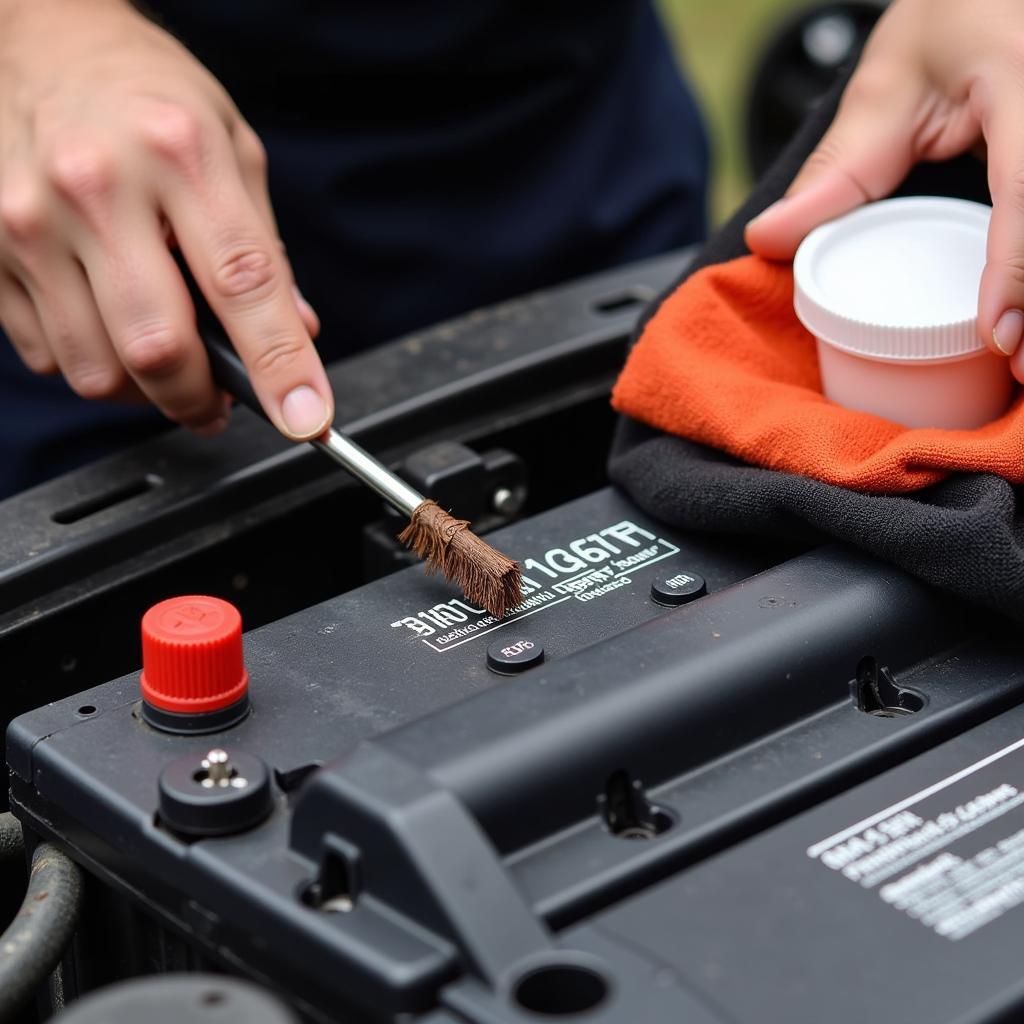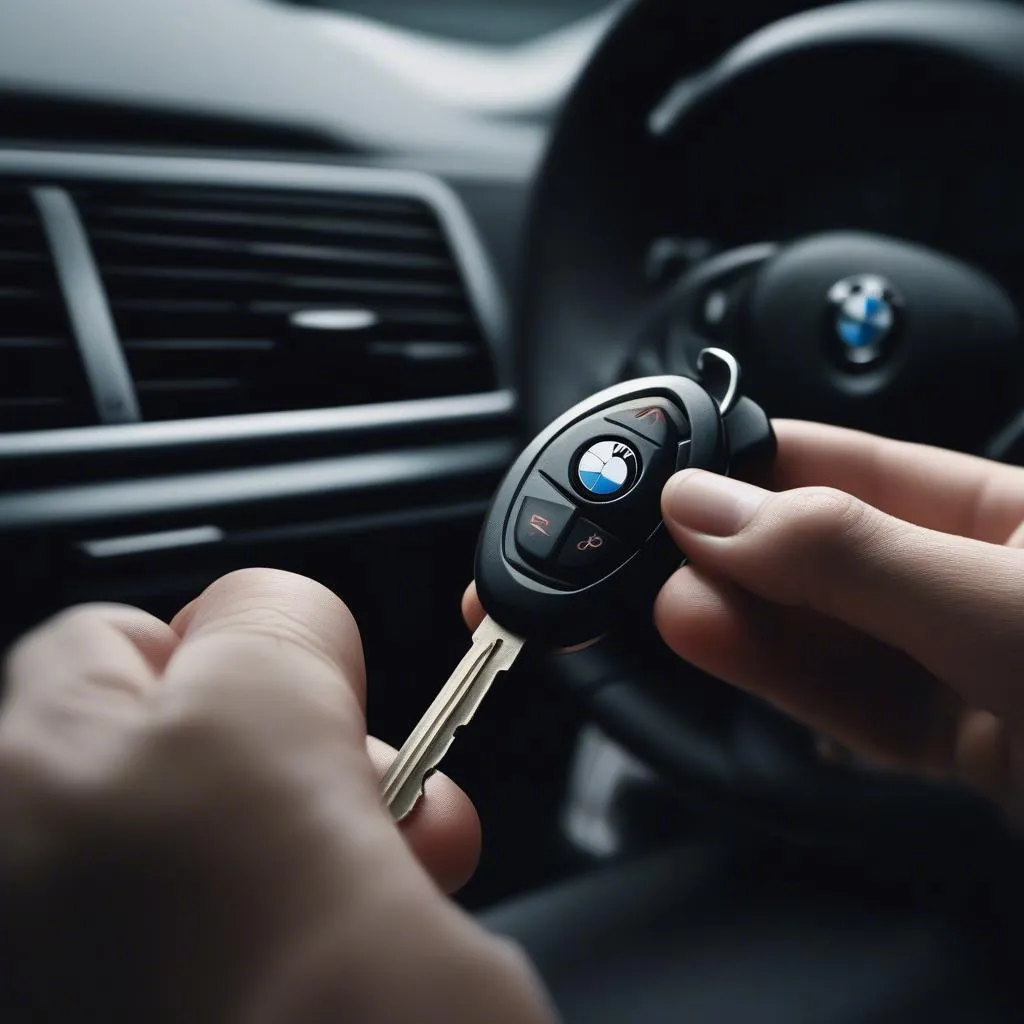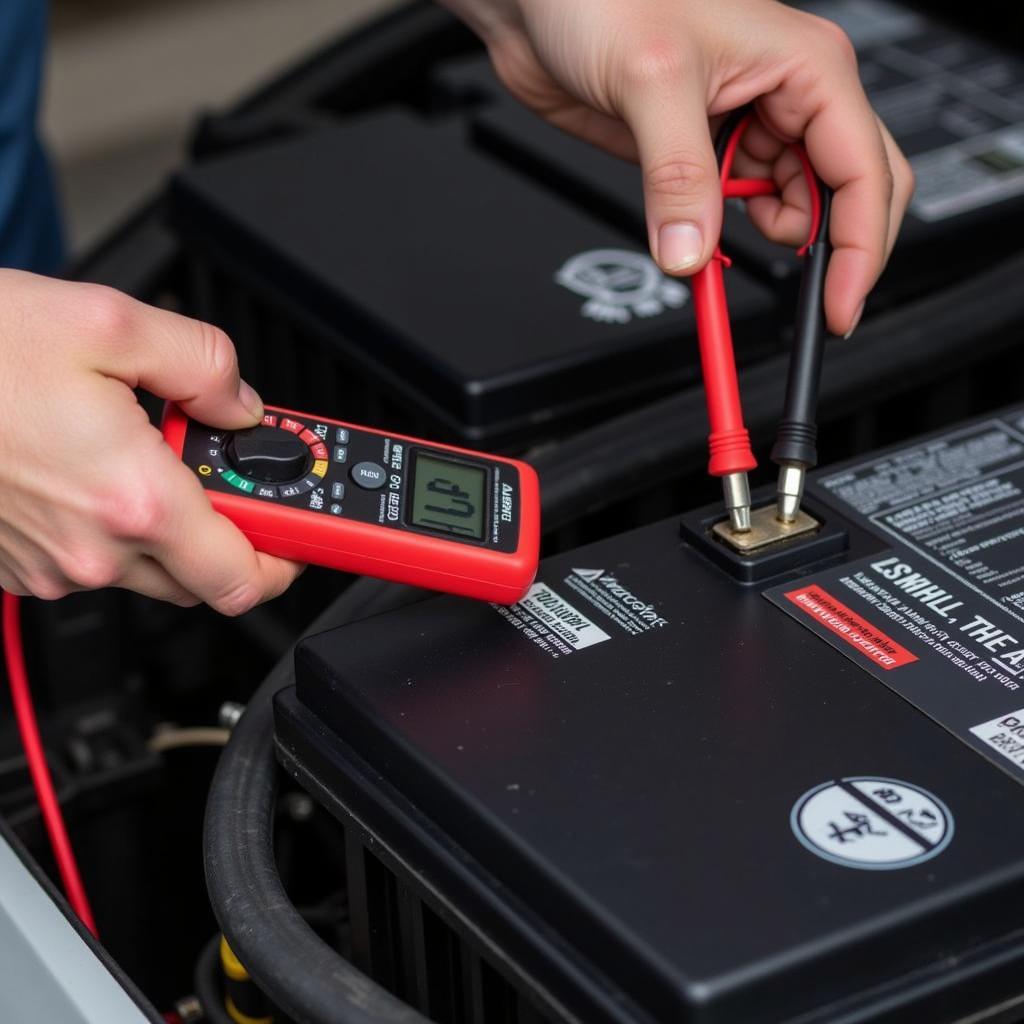A car battery is the heart of your vehicle’s electrical system. Recognizing the symptoms of a bad battery in car is crucial to avoid being stranded. This guide will walk you through the most common signs, helping you diagnose and address potential battery issues before they leave you stuck on the side of the road. battery going bad in car
Common Symptoms of a Bad Car Battery
Several symptoms can indicate a failing car battery. Being aware of these signs will allow you to take proactive measures and prevent unexpected breakdowns.
-
Slow Engine Crank: A sluggish engine crank is often the first and most noticeable symptom of a bad battery in car. If your engine takes longer than usual to turn over, or you hear a clicking sound when you turn the key, your battery may be nearing the end of its life.
-
Dim Headlights: Dimming headlights, especially when idling or using other electrical accessories, can be another sign. A weak battery struggles to provide enough power for all the electrical components, leading to reduced headlight brightness.
-
Electrical Malfunctions: A failing battery can cause various electrical glitches, such as malfunctioning power windows, erratic dashboard lights, and problems with the radio or infotainment system. These issues arise because the battery isn’t supplying consistent power.
-
Check Engine Light: While the check engine light can illuminate for various reasons, a failing battery can sometimes trigger it. The car’s computer detects voltage irregularities, causing the check engine light to come on.
How to Diagnose a Bad Car Battery
Diagnosing a bad battery in car often requires more than just observing symptoms. Here are a few methods to help confirm your suspicions.
-
Battery Voltage Test: Use a multimeter to measure the battery’s voltage. A fully charged battery should read around 12.6 volts. A reading below 12.4 volts typically indicates a weak or failing battery.
-
Load Test: A load test puts stress on the battery, simulating the demands of starting the engine. This test helps determine the battery’s ability to hold a charge under load. Most auto parts stores offer free battery testing.
What Causes a Car Battery to Go Bad?
Several factors can contribute to a bad battery in car. Understanding these can help you prolong your battery’s lifespan.
-
Extreme Temperatures: Both hot and cold weather can negatively impact a car battery’s performance and lifespan. Extreme heat can evaporate the battery fluid, while extreme cold can slow down the chemical reactions within the battery.
-
Old Age: Car batteries have a limited lifespan, typically ranging from three to five years. As the battery ages, its internal components degrade, leading to reduced performance.
-
Parasitic Drain: A parasitic drain occurs when electrical components continue to draw power even when the car is off. This can slowly drain the battery, leading to premature failure. car battery going bad symptoms
“Regular battery maintenance, like cleaning the terminals and checking the electrolyte levels, can significantly extend its lifespan,” says John Smith, a certified automotive technician with over 20 years of experience.
Preventing Car Battery Problems
Proactive measures can help you avoid dealing with a bad battery in car. Consider these tips:
-
Regular Inspections: Regularly inspect your battery for signs of corrosion or damage. Clean the terminals with a wire brush and baking soda solution.
-
Limit Short Trips: Short trips prevent the battery from fully recharging. If you frequently drive short distances, consider using a battery charger periodically.
-
Turn Off Accessories: Make sure all lights and accessories are turned off when you park your car to prevent parasitic drain. symptoms of a bad cell in car battery
 Cleaning Car Battery Terminals
Cleaning Car Battery Terminals
“Remember, early detection is key,” adds Sarah Jones, lead electrical systems engineer at AutoTech Solutions. “Addressing minor issues promptly can save you from major headaches down the road.”
Conclusion
Recognizing the symptoms of a bad battery in car is crucial for preventing unexpected breakdowns. By understanding the common signs, diagnostic methods, and preventative measures, you can keep your car running smoothly. bad battery in car symptoms Don’t wait until you’re stranded – take proactive steps to ensure your car battery is in top condition.
FAQ
-
How long does a car battery last? Most car batteries last between three and five years.
-
Can I jump-start a car with a completely dead battery? It’s possible, but if the battery is completely dead, it may not hold a charge.
-
How much does a new car battery cost? The price of a new car battery varies depending on the type and brand but typically ranges from $50 to $200.
-
What should I do if my car won’t start? Check the battery first. If it’s weak or dead, try jump-starting the car. battery bad symptoms If that doesn’t work, call a mechanic.
-
Can I replace a car battery myself? Yes, you can replace a car battery yourself with some basic tools and knowledge. However, if you’re unsure, it’s best to consult a mechanic.
-
How do I know if my alternator is bad? Some symptoms of a bad alternator include dimming headlights, flickering dashboard lights, and a whining sound coming from the engine.
-
How often should I check my car battery? It’s a good idea to check your car battery at least twice a year, especially during extreme weather conditions.


